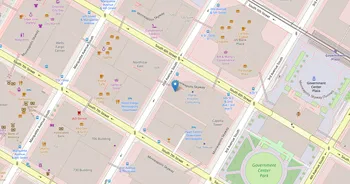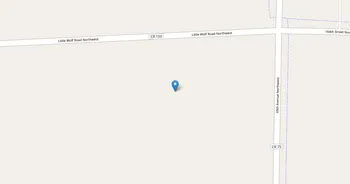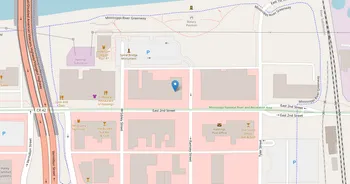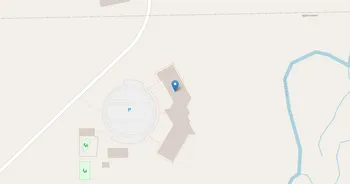Fond du Lac Tribal and Community College (FDLTCC) : Overview, Courses, Scholarships & Rankings
About Fond du Lac Tribal and Community College
Here's a rare blend: a tribal college and a community college on one campus. Fond du Lac Tribal and Community College is known for close-knit classes, hands-on learning, and steady transfer support. Students explore the liberal arts, sciences, health, business, and public service with plenty of guidance. Modern labs, a strong library, walk-in tutoring, and tech help sit alongside study lounges, fitness areas, and spaces for cultural learning.
Student life leans active and outdoorsy, with clubs, student government, service projects, and intramurals, plus fast access to pine forests, rivers, small-town convenience, and nearby city arts. The culture centers Anishinaabe values of respect and community, with gatherings that bring students and families together. Career prep shows up early through advising, resume help, and regional partnerships that can lead to internships. It's a place that favors purpose and real world momentum.
Key Institutional Details
Contact & Profile
Academic & Institutional
Academic Programs & Fields of Study
Fond du Lac Tribal and Community College (FDLTCC) offers 14 degree programs across 12 major academic fields, graduating approximately 196 students annually. The most popular fields by graduate volume are Liberal Arts (1 programs, 76 graduates), Security & Safety (1 programs, 48 graduates), Health (2 programs, 32 graduates), Natural Resources (1 programs, 6 graduates) and Education (2 programs, 6 graduates). Explore program details, award levels, and graduate demographics below.
Liberal Arts (1 programs, 76 graduates)
Liberal Arts Education, General Studies and Humanities
| Program Name | Graduates | Gender Distribution | Award Levels | CIP Code |
|---|---|---|---|---|
| Liberal Arts and Sciences | 76 |
|
Associate's
|
24.0101 |
Security & Safety (1 programs, 48 graduates)
Emergency Management, Law Enforcement and Public Safety
| Program Name | Graduates | Gender Distribution | Award Levels | CIP Code |
|---|---|---|---|---|
| Criminal Justice and Police Science | 48 |
|
Certificate (1-2 yrs)
Associate's
|
43.0107 |
Health (2 programs, 32 graduates)
Healthcare Professions, Medical Sciences and Clinical Practice
| Program Name | Graduates | Gender Distribution | Award Levels | CIP Code |
|---|---|---|---|---|
| Substance Abuse Counseling | 18 |
|
Other Award
|
51.1501 |
| Registered Nursing | 14 |
|
Associate's
|
51.3801 |
Natural Resources (1 programs, 6 graduates)
Environmental Science and Natural Resource Management
| Program Name | Graduates | Gender Distribution | Award Levels | CIP Code |
|---|---|---|---|---|
| Environmental Science | 6 |
|
Associate's
|
03.0104 |
Education (2 programs, 6 graduates)
Educational Sciences, Teaching Methods and Pedagogy
| Program Name | Graduates | Gender Distribution | Award Levels | CIP Code |
|---|---|---|---|---|
| Elementary Education | 5 |
|
Associate's
Bachelor's
|
13.1202 |
| General Education | 1 |
|
Other Award
|
13.0101 |
Languages (1 programs, 6 graduates)
Foreign Languages, Literature and Linguistic Studies
| Program Name | Graduates | Gender Distribution | Award Levels | CIP Code |
|---|---|---|---|---|
| American Indian Languages and Linguistics | 6 |
|
Other Award
|
16.1001 |
Human Sciences (1 programs, 6 graduates)
Family Studies, Consumer Sciences and Human Development
| Program Name | Graduates | Gender Distribution | Award Levels | CIP Code |
|---|---|---|---|---|
| Child Care Management | 6 |
|
Associate's
Other Award
|
19.0708 |
Social Sciences (1 programs, 4 graduates)
Sociology, Anthropology and Political Science Studies
| Program Name | Graduates | Gender Distribution | Award Levels | CIP Code |
|---|---|---|---|---|
| Geographic Information Science and Cartography | 4 |
|
Other Award
|
45.0702 |
Business (1 programs, 4 graduates)
Business Administration, Marketing and Entrepreneurship
| Program Name | Graduates | Gender Distribution | Award Levels | CIP Code |
|---|---|---|---|---|
| Finance, General | 4 |
|
Associate's
|
52.0801 |
Communication (1 programs, 3 graduates)
Media Communications, Journalism and Public Relations
| Program Name | Graduates | Gender Distribution | Award Levels | CIP Code |
|---|---|---|---|---|
| Digital Media and Multimedia | 3 |
|
Associate's
Other Award
|
09.0702 |
Tuition, Fees & Estimated Costs
Overview of tuition rates, housing, and other annual education expenses for undergraduate and graduate students
Financial Aid & Student Support
Summary of scholarships, grants, student loans, and financial aid statistics for undergraduate students
Student Success Metrics
Graduation rates and post-graduation earnings to help assess student outcomes and long-term value of education.
Loan Burden & Repayment Outcomes
Breakdown of loan repayment rates and student debt levels by income and dependency status.
Frequently Asked Questions
Find answers to the most common questions about Fond du Lac Tribal and Community College (FDLTCC)
How much does it cost to attend Fond du Lac Tribal and Community College (FDLTCC)?
The annual tuition at Fond du Lac Tribal and Community College (FDLTCC) is $5,999 for in-state students. When including room and board, books, and other expenses, the total estimated cost is approximately $22,185 for in-state students. Additional costs include room and board $8,924 and books and supplies $1,200.
Data based on IPEDS program completions for 2022-2023 academic year. Tuition and cost estimates are approximate and may not include all fees, personal expenses, or transportation costs.
What academic programs and degree levels does Fond du Lac Tribal and Community College offer?
Fond du Lac Tribal and Community College (FDLTCC) offers 14 academic programs across 12 major fields of study, with available degree levels: Certificate (1-2 yrs), Associate's, Bachelor's, Residency, Other Award.
Most popular program areas include:
- Liberal Arts Education, General Studies and Humanities (1 programs)
- Emergency Management, Law Enforcement and Public Safety (1 programs)
- Healthcare Professions, Medical Sciences and Clinical Practice (2 programs)
- Environmental Science and Natural Resource Management (1 programs)
- Educational Sciences, Teaching Methods and Pedagogy (2 programs)
Data based on IPEDS program completions for 2023-2024 academic year. Numbers reflect programs where students graduated, not all offered programs.
What financial aid and scholarships are available at Fond du Lac Tribal and Community College?
Fond du Lac Tribal and Community College (FDLTCC) provides financial aid to 5% of first-time, full-time students, with average grants of $11,143 and average loans of $5,510.
Average financial aid amounts by type:
- Pell grants: $5,217
- State/Local grants: $3,247
- Institutional grants: $2,880
- Federal loans: $5,510
The university supports 68 students with grants and 22 students with loans annually.
Data based on IPEDS for 2022-2023 academic year. Financial aid amounts and percentages may vary by program, enrollment status, and individual circumstances.
What is the average salary for Fond du Lac Tribal and Community College graduates?
Fond du Lac Tribal and Community College (FDLTCC) graduates earn a median salary of $37,251 after 6 years and $45,665 after 10 years.
The salary range 10 years after graduation spans from $22,415 (25th percentile) to $65,727 (75th percentile).
Data based on IPEDS for 2022-2023 academic year. Salary data reflects graduates who received federal financial aid (approximately 60% of all graduates). Actual earnings may vary significantly based on program, location, and individual circumstances.
Related Universities




Found something useful? Help others discover it too! Share with friends, on social media, or save for later - every share helps someone find the information they need.